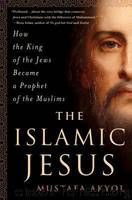The Islamic Jesus: How the King of the Jews Became a Prophet of the Muslims by Mustafa Akyol

Author:Mustafa Akyol
Language: eng
Format: epub
Tags: Religion, Islam, History, Christianity
Publisher: St. Martin's Press
Published: 2017-02-14T17:48:17.268085+00:00
CHAPTER SEVEN
ISLAMIC CHRISTOLOGY
“Islam recognized the particular function of Christ, which … differed from that of other prophets who usually brought a law or reformed a previous one, by acknowledging his particular nature as the ‘Spirit of God.’”
—Seyyed Hossein Nasr, Islamic philosopher1
Once upon time, Damascus, now the capital of the much troubled Syrian Arab Republic, was a Roman city and a Christian citadel. It was a home to a plenitude of denominations and churches, along with a beautiful cathedral that had been converted in the late fourth century from what used to be a temple of Jupiter. By the sixth century, Christians of the city also began to believe that the head of John the Baptist, severed in the first century by the orders of Herod Antipas, was buried there. Hence a small shrine was built within the cathedral—the shrine of John the Baptist.
Today, that shrine is still there, and is still venerated, but the magnificent building is a mosque because Muslim armies conquered Damascus, along with the rest of Syria, in the 630s, years after the passing of the Prophet Muhammad. Soon, after being shared for a while by Muslims and Christians, the cathedral was converted into a mosque, as Damascus became the capital of the Muslim empire ruled by the Umayyad Dynasty.
Yet Christians, and their creed, remained in the city. “The Christians were commonly given very fair treatment,” as a Christian author noted almost a century ago. “And, especially in the early days, many of them were employed in government offices.”2 One of these employees was Yuḥanna al-Dimashqi, or, as he is known in the West, John of Damascus. Besides being a Christian priest and theologian, John was also an erudite polymath, producing works on law, philosophy, and music. “Apparently his adhesion to Christian truth constituted no offence in the eyes of his Saracen countrymen,” the Catholic Encyclopedia observes, “Saracen” being an archaic Christian term for Muslims. “For he seems to have enjoyed their esteem in an eminent degree.”3
This eminent degree was none other than being the chief administrator at the court of caliph Abd al-Malik—the ruler who built the magnificent Dome of the Rock in Jerusalem. This official job in a Muslim empire did not keep John of Damascus from engaging in theological debates, however, as he had written extensive polemics against both rival Christians—such as iconoclasts, a major group at the time—and Muslims. Against the latter, whose faith he had a good chance to examine, he wrote informed polemics. Unlike the Byzantine theologians, whose knowledge of Islam was much more indirect, John connected Islam not to diabolical forces, but to the Arian and Nestorian heresies.4 He even devoted some ink to use the Muslims’ own scriptures to prove the divinity of Christ. On this particular matter, he also gave a bit of advice to his fellow Christians, in his Disputatio Saraceni et Christiani:
If a Saracen asks you saying, “Who do you say Christ is,” reply to him, The Word of God … Then you ask him in
Download
This site does not store any files on its server. We only index and link to content provided by other sites. Please contact the content providers to delete copyright contents if any and email us, we'll remove relevant links or contents immediately.
The Gnostic Gospels by Pagels Elaine(2531)
Jesus by Paul Johnson(2363)
Devil, The by Almond Philip C(2333)
The Nativity by Geza Vermes(2233)
The Psychedelic Gospels: The Secret History of Hallucinogens in Christianity by Jerry B. Brown(2158)
Forensics by Val McDermid(2094)
Going Clear: Scientology, Hollywood, and the Prison of Belief by Lawrence Wright(1985)
Going Clear by Lawrence Wright(1968)
Barking to the Choir by Gregory Boyle(1822)
Old Testament History by John H. Sailhamer(1817)
Augustine: Conversions to Confessions by Robin Lane Fox(1774)
The Early Centuries - Byzantium 01 by John Julius Norwich(1745)
A History of the Franks by Gregory of Tours(1729)
A Prophet with Honor by William C. Martin(1727)
Dark Mysteries of the Vatican by H. Paul Jeffers(1723)
The Bible Doesn't Say That by Dr. Joel M. Hoffman(1682)
by Christianity & Islam(1636)
The First Crusade by Thomas Asbridge(1610)
The Amish by Steven M. Nolt(1575)
